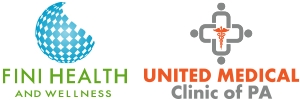Preventive Care
Routine Wellness Exams
Your doctor will ask questions about your weight, height, blood pressure, body mass index (BMI), and discuss your health choices and current lifestyle.
School Physical Exams
It measures important vital signs -- temperature, blood pressure, and heart rate - and evaluates your body using observation, and auscultation.
Sports Physical Exams
A thorough physical examination covers head to toe and lasts about 30 minutes. It measures important vital signs - blood pressure, and heart rate.
Immunizations
A process by which a person becomes protected against a disease through vaccination.
Flu Shots
Influenza (flu) vaccines (often called “flu shots”) are vaccines that protect against the four influenza viruses.
Women’s Health
Pap Smears
A procedure in which a small brush is used to gently remove cells from the surface of the cervix and the area around it so they can be checked under a microscope for cervical cancer or cell changes that may lead to cervical cancer.
Breast Exams
The breast examination is to determine if the breasts are normal or abnormal. If abnormal, any or all of the following may be indicated: surgical consultation, reexamination at a different time of menstrual cycle, and possibly ultrasound.
Pregnancy Testing
A pregnancy test can tell whether you are pregnant by checking for a particular hormone in your urine or blood. The hormone is called human chorionic gonadotropin (HCG).
Birth Control
Birth control, also known as contraception, anticonception, and fertility control, is a method or device used to prevent pregnancy. Birth control has been used since ancient times, but effective and safe methods of birth control only became available in the 20th century.
WOMEN’S HEALTH
Weight Management
Commonly Treated Conditions
Allergies & Asthma
A type of asthma, allergic asthma is a condition where your airways tighten when you breathe in an allergen. This can be something in the air — often pollen, dander or mold spores.
Cholesterol Problems
Your body needs cholesterol to build healthy cells, but high levels of cholesterol can increase your risk of heart disease. With high cholesterol, you can develop fatty deposits in your blood vessels.
Diabetes
Diabetes is a disease that occurs when your blood glucose, also called blood sugar, is too high. Blood glucose is your main source of energy and comes from the food you eat.
Digestive Problems
A digestive disease is any health problem that occurs in the digestive tract. Conditions may range from mild to serious.
Sports Injuries
A sports injury involves damage to part of your body due to sports, exercise or athletic activities. A sports injury can be acute (sudden) or chronic
Kidney Disease
Kidney disease means kidneys damaged and can't filter blood the way they should. You are greater risk for kidney disease if you have diabetes or high blood pressure.
Weight Management
Weight management includes the techniques and physiological processes that contribute to a person's ability to attain and maintain a certain weight. Most weight management techniques encompass long-term lifestyle strategies.
Sprains/Strains
A sprain is an injury to the ligaments and capsule at a joint in the body. A strain is an injury to muscles or tendons. Immediate treatment of sprains or strains includes protection, optimal loading, ice, compression and elevation (POLICE).
Viral Bacterial Illnesses
bacterial infections are caused by bacteria, and viral infections are caused by viruses. Perhaps the most important distinction between bacteria and viruses is that antibiotic drugs usually kill bacteria, but they aren't effective against viruses.
Hypertension/High Blood Pressure
High blood pressure, also called hypertension, is blood pressure that is higher than normal. Your blood pressure changes throughout the day based on your activities. Having blood pressure measures consistently above normal may result in a diagnosis of high blood pressure (or hypertension).
